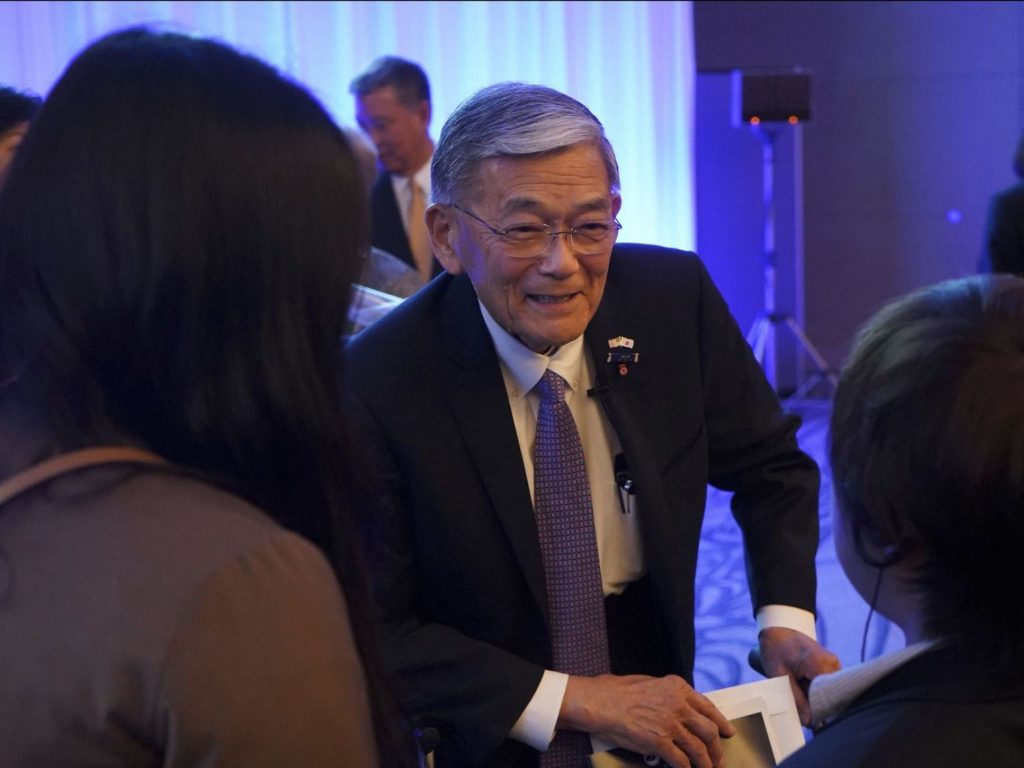
The U.S.-Japan Council is proud to partner with the United States Department of State in launching the Mineta Ambassadors Program (MAP), an education endowment program to support exchange opportunities between U.S. and Japanese students. This new program reflects our shared mission of investing in the next generation of leaders to ensure the future of the U.S.-Japan relationship.

The Mineta Ambassadors Program’s name honors the legacy of former U.S. Secretary of Transportation and U.S. Secretary of Commerce, the Honorable Norman Y. Mineta, who, in addition to his celebrated career of public service, was a longtime member and leader within the U.S.-Japan Council.
By creating opportunities for students to study abroad in Japan and the United States, the Mineta Ambassadors Program will foster global mindsets, cultivate long-term bilateral ties and bolster the strength and resilience of the special relationship between the United States and Japan.
The U.S.-Japan Council and the U.S.-Japan Council (Japan) will administer the Mineta Ambassadors Program. The United States Embassy in Japan will serve as the U.S. government’s lead on guiding and supporting the program.
More information on the program and upcoming scholarship opportunities will come soon.
Sponsors
MAP will be made possible thanks to the generosity of donors who share our vision of strengthening U.S.-Japan relations and empowering the next generation of global leaders.
- Aflac
- Apple*
- The BlackRock Foundation*
- CrowdWorks, Inc.
- Dr. Hiroyuki and Mrs. Mikiko Fujita
- Goldman Sachs
- Kawasaki Heavy Industries, Ltd., and Kawasaki Good Times Foundation
- Kikkoman Corporation
- Mitsubishi UFJ Financial Group
- Satoru and Hiroko Murase
- Oisix ra daichi Inc.
- PKSHA Technology Inc.
- Sony Group Corporation
- Suntory Holdings Limited
- Thierry Porté
- TOBE MAKI Foundation and Otsuka America, Inc.
- United States-Japan Foundation
- The Toshizo Watanabe Foundation*
*Top Sponsors
Thank you to everyone else who pledged in support of this program!
Donate
To donate in support of the Mineta Ambassadors Program through the U.S.-Japan Council, please click here and submit your donation marked as “Mineta Ambassadors Program / MAP Endowment.”